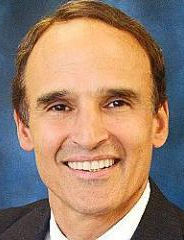
Direct primary care company Vitable has raised $16 million in Series A funding, which it will use to expand into new markets, the startup announced Friday.
Philadelphia-based Vitable works with small to medium-sized businesses that employ blue collar workers. Employers pay the company $30 on average per employee per month. Through Vitable’s app, employees and their dependents receive in-home and virtual primary care services, over 1,000 free prescriptions, common lab tests, mental health services and care navigation support.
The $16 million Series A funding round was led by Cherryrock Capital and included participation from newark venture partners, Citi Impact Fund, First Round Capital, Commerce Ventures and Y Combinator. In total, Vitable has raised more than $25 million.
Citi Impact Fund invested in Vitable because it “has a big opportunity to positively impact individuals and families in the U.S. by providing new, more affordable healthcare options for shift workers and those working in small businesses,” said Ryan Alam, senior vice president and principal of the fund, in a statement.
The financing will help the company expand into additional states. It currently operates in Pennsylvania, New Jersey, Illinois, Delaware, Maryland, Florida and Washington, D.C. This month, it is launching in Ohio and Texas. It aims to be available in more than 40 states in the near future, said Joseph Kitonga, founder of the company.
“We stayed in Pennsylvania for a really long time,” Kitonga said in an interview. “The goal was to nail the model in Pennsylvania [through] clinical engagement, net promoter scores and gross margins and then prove it out in a few adjacent markets. The next phase for us is to take what’s worked in Pennsylvania and replicate it across the U.S.”
Kitonga decided to build Vitable based on personal experience. His family immigrated to the U.S. from Kenya when he was 13. His parents built a senior care business that eventually grew into having about 200 employees and caregivers.
“The core inspiration for Vitable was that the caregivers made too much to qualify for Medicaid but too little for the Cadillac health insurance plan,” he said. “So a majority of them were uninsured or underinsured, stuck over utilizing the emergency room. Upwards of 70% of ER visits are unnecessary, costing an average of a few thousand dollars per visit, which makes upward mobility more difficult, but generally also leads to worse health outcomes.”
He noted that he was particularly motivated to create Vitable after learning that in Philadelphia, the difference in life expectancy for two zip codes just five miles apart could be 20 years. And while there is a wealth of digital health solutions that support large employers, small employers with blue collar workers are often left behind.
“What’s left underserved are the small businesses that really employ the majority of working Americans, and this is where I think both the greatest need exists and the greatest opportunity,” Kitonga said.
Other direct primary care companies include Forward Health and EverMed.
Photo: Abscent84, Getty Images





